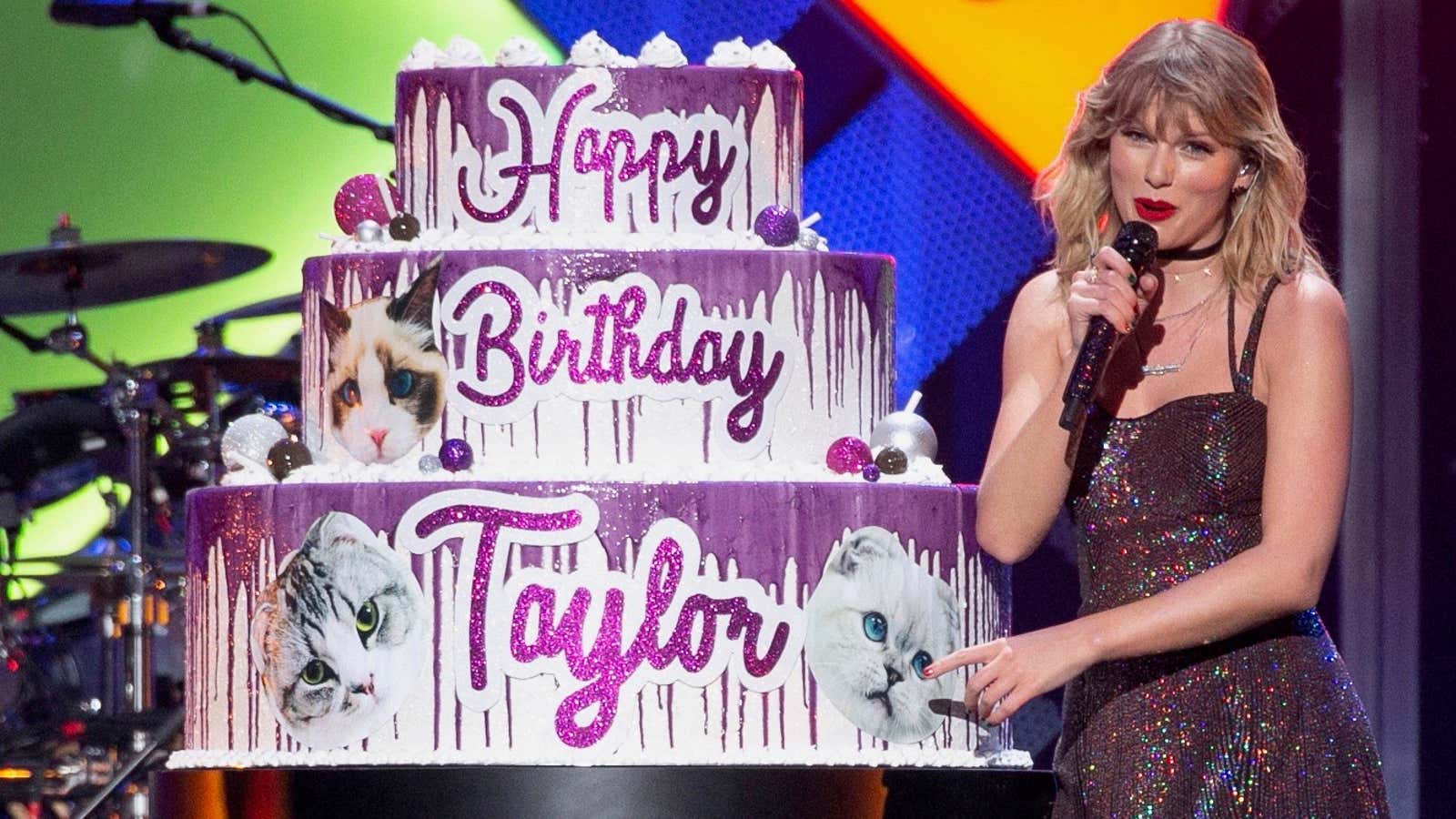As you have no doubt surmised by now, Taylor Swift is a staunch capitalist and a very successful one at that. Nonetheless, the pop star seems steeped in Marxism when she fights for the rights of songwriters to own their output, as she did on Dec. 12 when accepting the award for Billboard’s “Woman of the Decade.”
Swift surprised financiers by calling out “the unregulated world of private equity” during her speech, saying, “[They’re] buying up our music as if it is real estate. As if it’s an app or a shoe line.”
The singer-songwriter singled out music executive Scooter Braun, who controversially bought her back catalogue when he purchased Swift’s former record label, Big Machine. They’ve been publicly feuding since June. Swift also chided his financial backers, “the Soros family, 23 Capital, and the Carlyle Group,” saying they were a “potentially harmful force.”
The chiding at a music industry event “stunned” one person implicated by Swift’s statement, according to the New York Post. But no financier was willing to comment on the record.
Still, anyone who knows Swift—which on some level is almost everyone—knows that she isn’t shy about expressing her displeasure. And this was a fitting occasion for the musical powerhouse to take on Big Money on behalf of Big Music. After all, her talent and cultural and commercial domination was being celebrated by her peers and colleagues.
It was perhaps the perfect platform for Swift’s complaints because it highlighted just how powerful a force musicians are up against. Not even Swift, with all her might and fight, is free from tyranny, and she’s the woman of the decade. Imagine how powerless everyone else is.
Braun bought Big Machine for $300 million this year. His big public feud with Swift began on June 30 when the sale was announced and she posted a complaint on Tumblr, outlining her objections to Braun, who she called a bully, and saying she found out about the deal along with everyone else.
The purchase gave Braun the master recordings for six Swift albums. ”You deserve to own the art you make,” Swift wrote.
But as Quartz’s Sarah Todd explained shortly after Swift’s complaints went viral and sparked a celebrity showdown on social media, this simple maxim does not at all describe the reality of production in a capitalist society.
“It’s entirely commonplace for record companies to hold the rights to artists’ music, and for those rights to be bought and sold with little regard for the preferences of the people who actually wrote the songs and played the instruments,” she wrote. That’s how Michael Jackson ended up owning the Beatles’ catalog in 1985 and licensing the band’s songs for commercials, over the objections of Paul McCartney.
Swift has always been vocal about her feelings, but it is perhaps notable that she chose to express her outrage over private equity looters—a decidedly grown-up topic—on the cusp of a significant birthday. She turned 30 yesterday.
